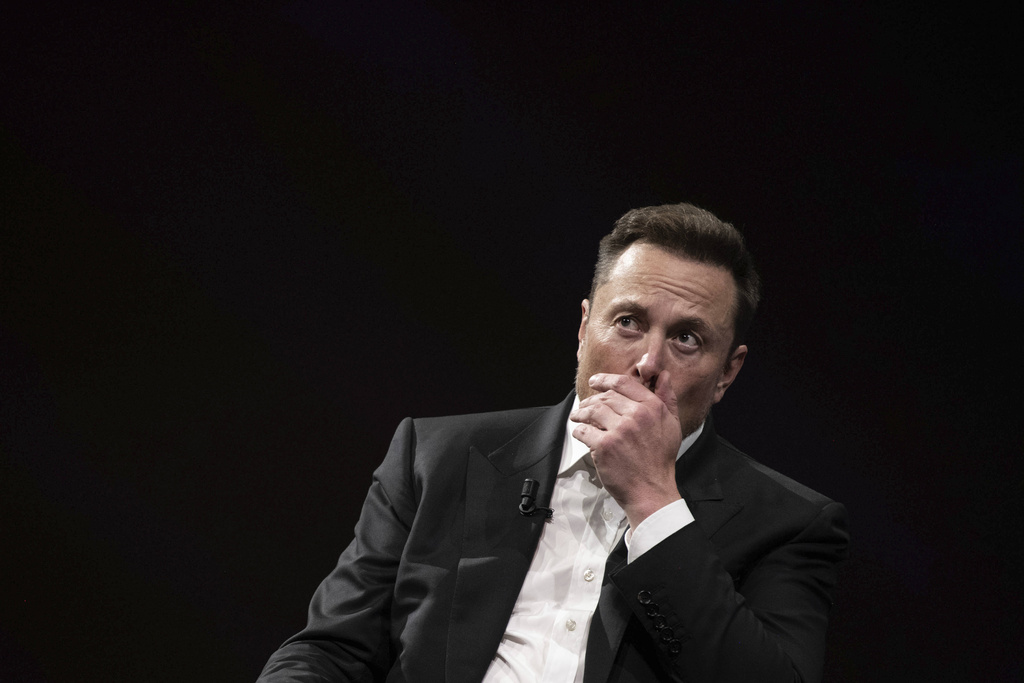The Obnoxious Absurdity of Elon’s Threat to Sue the Anti-Defamation League for Defamation

Sipa via AP Images
Elon Musk spent a lot of time this past Labor Day weekend stomping his feet about the Anti-Defamation League’s criticism of The Platform Formerly Known as Twitter, threatening to sue the organization for defamation “[t]o clear our platform’s name on the matter of anti-Semitism.”
Musk can certainly make a lot of noise with his 150 million-plus Twitter followers creating one of the world’s biggest megaphones and obsessive media coverage rivaled perhaps only by former President Donald Trump, but legal doctrine does not grant him a right to civil damages just because he can shout the loudest.
Musk’s feud with the ADL was sparked by its support for an effort in November 2022 urging advertisers to “pause Twitter spending because we are profoundly concerned about antisemitism and hate on the platform.”
The ADL cited as examples how Musk “conducted massive layoffs, gutting staff that supported combating antisemitism and hate on Twitter,” his decision to allow Kanye West back on the platform after his antisemitic tweet about going “death con 3 On JEWISH PEOPLE,” and a proliferation of other antisemitic content that Twitter “declined to remove” under Musk’s leadership.
On Monday, Musk claimed that Twitter had “no choice but to file a defamation lawsuit against the Anti-Defamation League … oh the irony!”
In subsequent tweets, he added the absurd claims that the ADL “would potentially be on the hook for destroying half the value of the company, so roughly $22 billion” and “[b]ased on what we’ve heard from advertisers, ADL seems to be responsible for most of our revenue loss…Giving them maximum benefit of the doubt, I don’t see any scenario where they’re responsible for less than 10% of the value destruction, so ~$4 billion.”
A lawsuit doomed to fail in multiple ways
In general, to win a defamation claim against the ADL, Musk will have to prove that the organization made a false statement of fact, the statement was communicated to a third party, the ADL did so negligently or knowingly, and the statement caused harm.
Because Musk is a public figure — the richest man in the world is unquestionably an international celebrity — at least as far as he attempts to assert any claims about statements made about him personally, he will need to prove that the ADL acted with “actual malice,” or made the statement knowing it was false or acted with a “reckless disregard” for the truth. This is the same legal doctrine that was an insurmountable stumbling block for Sarah Palin’s defamation lawsuit against The New York Times last year.
Other than “the statement was communicated to a third party” — the ADL’s tweets, press releases, and comments by its CEO Jonathan Greenblatt were obviously public and widely disseminated — Musk will have an extremely difficult time establishing any of the required legal elements in court, and there isn’t any conceivable evidence that discovery could turn up that would contradict the veritable mountains of evidence currently available to anyone with five minutes of internet access.
A mountain of true statements of fact
One of Musk’s biggest challenges in proving his case is the staggering volume of antisemitic content easily found on Twitter over the past year, coupled with the well-publicized complaints of such content being reported but either ignored by the skeleton staff remaining on Twitter’s moderation team, or worse, amplified by Musk himself.
Yair Rosenberg, a staff writer for The Atlantic, retweeted a thread by The Sparrow Project showing a significant spike in antisemitic and racist content on Twitter since Musk’s troubled tenure began, and noted that the “[a]ctual straightforward data” came from “Twitter’s own API” — the platform’s publicly accessible search functions — “being scanned for antisemitic catchphrases.”
On Monday, Claire Berlinski posted on her Substack a carpal-tunnel-inducing collection of screenshotted tweets to scroll through, showing some of the patently vile content Musk’s Twitter has not just condoned, but promoted through its “Trending Topics,” and explained how he has weaponized his massive digital spotlight to boost the seething, hateful dregs of the Twitterverse when he engages with their tweets:
Here’s what happens: When Musk calls attention to someone that way, he makes them famous, immediately. It directs a human tidal wave of attention—some 140 million Elon Musk fans—to their accounts. When he calls attention to these loathsome radical losers, they suddenly garner more attention than they ever have before in their pathetic lives and ever otherwise would.
Usually, Musk doesn’t explicitly endorse the most outrageously antisemitic thing the outrageous antisemite has said. He likes or retweets or responds to something that, taken independently, is just ambiguous enough that it might be hard to construe it as antisemitic if you were, for example, an irretrievable imbecile.
But Musk has turned all of Twitter into a giant engine for knowing what Musk is thinking, at all times. It’s inescapable. This means that every time Musk “likes” an antisemitic account, or replies, “concerning!” to one of its lunatic claims, some 140 million aimless, vague, discontented young men learn all about this fascinating theory that Jews secretly rule the world.
Musk’s amplification of the #BanTheADL hashtag is just the latest example of him engaging in a Tucker Carlson-esque charade to facetiously claim he’s just asking questions while blasting oxygen into the fire of online neo-Nazi trolls. As The Jerusalem Post reported, Musk liked and engaged with tweets with the #BanTheADL hashtag that were posted by notorious antisemites starting shortly after it launched, and those likes were “touted” by those antisemites to their followers.
One tweet by Keith Woods, “an Irish white nationalist and self-described ‘raging antisemite,'” used language very similar to Musk’s own complaints that the ADL was wrongfully causing financial harm to Twitter, as the Post noted:
“The ADL’s favourite tactic is financially blackmailing social media companies into removing free speech on their platforms,” Woods said in his Aug. 31 tweet. “Why should they have a platform on X to hold @elonmusk to ransom? It’s time to #BanTheADL.”
Opinions are protected, even if they’re “terrible”
The ADL has said there is antisemitic content on Twitter and that the volume of it has increased. Those are objectively true statements of fact, and just like Trump managed to find a rogues’ gallery of shady attorneys to represent him for his sprawling legal messes, Musk may very well be able to throw enough money at an attorney foolhardy enough to attempt to argue that up is down, the sky isn’t blue, and other Orwellian nonsense, but that won’t likely last very long in an actual courtroom.
Attorney and conservative political commentator David French spent most of his legal career focusing on First Amendment issues, including serving as the president of the Foundation for Individual Rights in Education (FIRE). “The truth is always a defense” to a defamation claim, he emphasized in a phone interview with Mediaite — “by definition, something isn’t defamation if it’s true” — and then the ADL would also be able to argue that its opinions about those facts were “constitutionally protected.”
“If you’re talking about someone’s subjective assessment of a particular set of facts,” he continued, “then you’re going to have a high, extraordinary degree of protection.”
Even if the ADL went so far as to say that Musk was not just tolerating or encouraging antisemites, but was antisemitic himself, French was highly doubtful he’d be able to prove that was defamatory, because of the broad protections the First Amendment granted to opinions. The “classic example of a defamatory comment” was saying someone’s been convicted of a crime they haven’t committed, said French, but the same legal cautions about calling someone a “rapist” don’t apply to “racist”:
Let’s suppose, for example, someone said, “David French is a racist.” And you said, “Well, why do you think David French is a racist?” And someone said, “Well, because he’s a conservative and conservatives are racist.”
That’s not defamation. That’s just a terrible opinion.
And you can’t get damages for being terrible, he noted. If, however, someone said “David French is a racist because he burned a cross in someone’s yard, well, then, that would be defamation,” French said, because the law isn’t going to protect opinions that are based on untrue statements of fact.
Musk was trafficking in “a classic antisemitic trope” by blaming the ADL for “destroying half the value” of his company, said French, and Greenblatt’s comments that Musk was “just wrong” for “blaming the Jews” for his company’s woes were again protected opinion, and “entirely fair” to say.
“Like any boycott”
Clay Calvert, professor emeritus of First Amendment and media law at the University of Florida’s Colleges of Law and Journalism, concurred with the assessment of the strength of the ADL’s defenses of truth and protected opinion, and also noted the extreme difficulty Musk would have in proving causation of harm.
For the ADL to urge advertisers to “pause” their Twitter ad buys because of their criticism of antisemitic content on Twitter, Musk’s own comments, and Twitter’s moderation policies, that was “like any boycott,” said Calvert, “and that’s not illegal to say.”
“All they’re doing is encouraging people not to do business with [Twitter],” said the professor, who is also a Senior Fellow at the American Enterprise Institute. “That’s absolutely going to be protected” as long as the “underlying assertions” aren’t false.
I asked Calvert, “So, if Ben Shapiro can tell people not to watch the Barbie movie and Kid Rock can tell people not to drink Bud Light, then the ADL can tell people not to advertise on Twitter?”
“Exactly right,” he replied. “That’s their prerogative to do that.”
A defamation complaint in contract law’s clothing
Calvert also pointed to a recent lawsuit X Corp. (the parent company of The Platform Formerly Known as Twitter) filed against the Center for Countering Digital Hate (CCDH) after Musk made similar complaints that the organization had wronged Twitter by criticizing it for “a sharp increase in hate speech” since Musk bought the company, for reinstating accounts that had previously been banned for posting hateful content, and for how the platform “fails to act on 99% of hate posted by Twitter Blue subscribers,” instead benefiting from millions of dollars in advertising revenue generated by that content.
Notably, in the complaint filed in federal court in California on July 31, X Corp.’s lawyers use a lot of language that sounds like they’re setting up a defamation lawsuit — accusing the CCDH of making “false” claims to engage in “a scare campaign to drive away advertisers” — but they don’t actually include defamation in any of the causes of action.
Instead, X Corp. sued the CCDH for three contract claims (breach of contract, intentional interference with contractual relations, inducing breach of contract) related to allegations the CCDH interfered with Twitter’s relationships with advertisers and a claim the CCDH violated a federal computer fraud law, accusing the group of improperly accessing Twitter’s protected data.
Calvert called not suing for defamation a “strategic” move by Musk because it lets him claim “he’s not trying to squelch speech,” he’s just trying to complain about the CCDH’s journalistic methodology, trying to make the case about “how the CCDH gathered the information rather than what it said, even though if you read the complaint, he’s complaining about what they said.”
Essentially, Musk wants to keep wearing his “free speech warrior” hat even though he really doesn’t want his critics speaking, and it seems likely that if he does sue the ADL, the complaint would look similar to the one filed against the CCDH so he can continue this pretense.
Musk’s impossible task of proving damages — and a legal hammer for the ADL
Musk’s claim that the ADL deserved to be “on the hook for destroying half the value” of Twitter was loudly and aggressively mocked on his own platform, and Calvert called it a “really fascinating” legal issue to try and “parcel out” what exact harm could be blamed on the ADL — especially when the company had just sued the CCDH claiming it was at fault for damaging Twitter.
As an example, Calvert said if an online review of a restaurant falsely claimed there were rats in the kitchen, and then the restaurant’s daily revenue plummeted in the next few days, that would be fairly clear cut, with an immediate harm shown and one actor causing the harm.
Here, we have almost a year of Musk’s chaotic leadership, throughly documented in gloriously brutal detail by countless media outlets. TechDirt editor Mike Masnick was but one of many who have blasted the “enshittification” of Twitter under Musk; who’s to say that advertisers dumped Twitter because of the ADL’s efforts, reading articles like Masnick’s, or just the squeamish horror advertising executives felt after seeing their companies’ ads adjacent to avowed neo-Nazis photoshopping Jewish journalists into ovens, or a combination of all of these?
Again, even if there is an advertiser out there who would testify they quit advertising on Twitter solely because of the ADL, the organization still can prevail with either of their key defenses of truth or protected opinion, an outcome that both Calvert and French independently assessed the ADL’s defenses as highly likely.
The two legal experts also brought up an additional defense the ADL could deploy against Musk: the “anti-SLAPP” laws available in most jurisdictions, designed to defend against a “strategic lawsuit against public participation” brought by a powerful and deep-pocketed litigant who seeks to silence someone’s speech about an “issue of public concern.”
“From what I’ve seen, this is the exact kind of case that anti-SLAPP statutes were made to deal with,” French told Mediaite. “Large, deep pocketed litigants have been known to try to use defamation litigation to squash small publications, for example, just through the cost of defending the case…this is the kind of case that would, I think, be extremely vulnerable to one of these anti-SLAPP motions.”
The way these statutes operate is to give defendants the right to “summary proceedings,” or expedited motions and hearings to settle the issue, and if they are successful, an award of attorneys fees and costs to be paid by the plaintiff who wrongfully tried to silence them.
So while it is certainly possible Musk will indeed file a lawsuit against the ADL, the legal claims he could bring are a lot like his challenge to fight Facebook founder Mark Zuckerberg — boastful, boisterous, and headline-grabbing, but inherently weak and extremely likely to immediately collapse upon their first interaction with reality.
And at least Zuck isn’t going to send Elon a bill for his time.
This is an opinion piece. The views expressed in this article are those of just the author.




